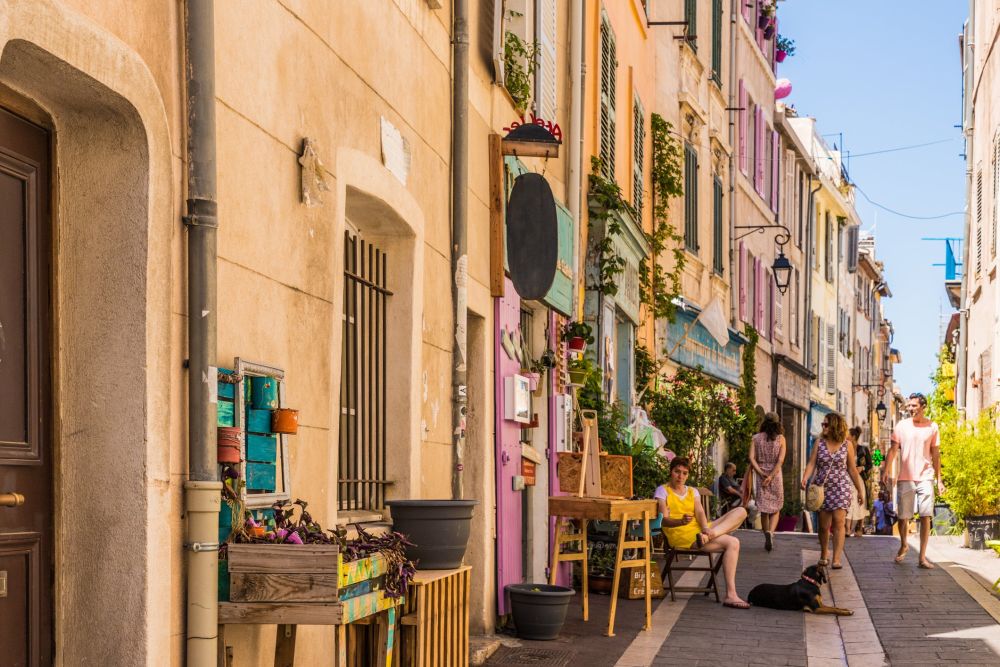

Located in the heart of France's vibrant port city Marseille, Le Panier is the city's oldest quarter, often referred to as the Old Town. This picturesque district is nestled on a hill above the Vieux Port, the old harbor that has been the beating heart of Marseille since the city was founded by Greek sailors approximately in 600 BC. With its charming narrow streets, colorful facades, and rich cultural heritage, Le Panier is a testament to the city's storied past and diverse influences.
Tourism in Le Panier can trace its roots back to the post-World War II era when Marseille began to rebuild and reinvent itself. The neighborhood of Le Panier, much like the rest of the city, underwent significant restoration. Visitors were initially drawn to the area's historical sites, such as the Vieille Charité, a former almshouse now home to museums and cultural spaces, and the Cathédrale La Major, an imposing edifice showcasing a mix of Romanesque and Byzantine architecture.
Despite its historical significance, Le Panier wasn't always at the forefront of tourism. The area was once considered less desirable due to its dilapidated buildings and social issues. However, efforts to revamp its image and infrastructure in the late 20th and early 21st centuries led to a resurgence of interest in this quaint historic district.
A major turning point for Le Panier's tourism allure was when Marseille was named the European Capital of Culture in 2013. This sparked extensive renovation projects which made the old quarter more accessible and attractive to visitors. Present-day Le Panier is a vibrant cultural hub, with its historical charm preserved amid artsy boutiques, galleries, and cafes that now thrive in the refurbished buildings.
Today, Le Panier appeals to tourists who seek an authentic experience of Marseillais life. The latest trend in the area is experiential travel, where visitors immerse themselves in the local culture. Tourists often engage in:
Moreover, as people become more interested in sustainable travel, there has been an increased awareness and appreciation for Le Panier's efforts to maintain its cultural identity and heritage while catering to tourists. Engaging with the community responsibly and supporting local businesses have become important considerations for the modern traveler.
In conclusion, the tourism history of Le Panier in Marseille is one of transformation and rejuvenation. From its humble beginnings as a modest fishermen's quarter, it has risen to prominence as a cherished historic district, embracing its multicultural roots and firmly establishing itself as a must-visit destination for those exploring the south of France.